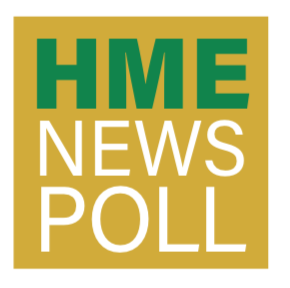Philips exit: ‘Nothing fazes us anymore'

By Theresa Flaherty, Managing Editor
Updated 11:20 AM CST, Fri February 16, 2024
 YARMOUTH, Maine – A decision by Philips to exit a large chunk of the U.S. respiratory market will have a significant impact on the market, say 70% of respondents to a recent HME Newspoll.
YARMOUTH, Maine – A decision by Philips to exit a large chunk of the U.S. respiratory market will have a significant impact on the market, say 70% of respondents to a recent HME Newspoll.
Philips announced in January that it was discontinuing sales for 19 sleep and respiratory products, including oxygen concentrators and ventilators.
“There are very few big manufacturers left,” wrote one respondent. “Respironics had many high-quality products that will be difficult to replace.”
Ventilators hit hard
While the news hit hard across the board, the ventilator market is likely to be hardest hit, say respondents.
“We have hundreds of ventilators we cannot use,” wrote one respondent. “This has had a significant impact on revenues and COGS.”
While Philips has committed to continue servicing discontinued Trilogy 100/200/202 portable vents through December 2025 and Trilogy EVO and EV300 vents through Jan 25, 2029, respondents say they’ve noticed a difference in the company's customer service.
“Philips cancelled a pending ventilator order without warning,” wrote one respondent. “Nothing from Philips seems to faze us anymore, but (there has been) very poor customer service for those who still continue to support Philips after the (CPAP) recall.”
Pricing bubbles
So far, nearly 84% of respondents have managed to source new equipment, but one respondent called out one manufacturer for price gouging, another for putting out an inferior product and a third for not stepping up in the first place. Sixty-six percent of respondents say new equipment has come at a higher price.
“Less competition always impacts pricing,” wrote one respondent. “It has already been difficult getting PAP devices, so I can only imagine it is going to be a challenge for vents down the road.”
Perfect is the enemy
At the end of the day, many respondents are weary of decisions that are out of their control. Now both Philips and Invacare have been subject to multi-year consent decrees with the U.S. Food and Drug Administration.
“First it was Invacare; then it was the formula market; now, Philips,” wrote one respondent. “The FDA cannot keep from making perfect the enemy of the good.”
Comments